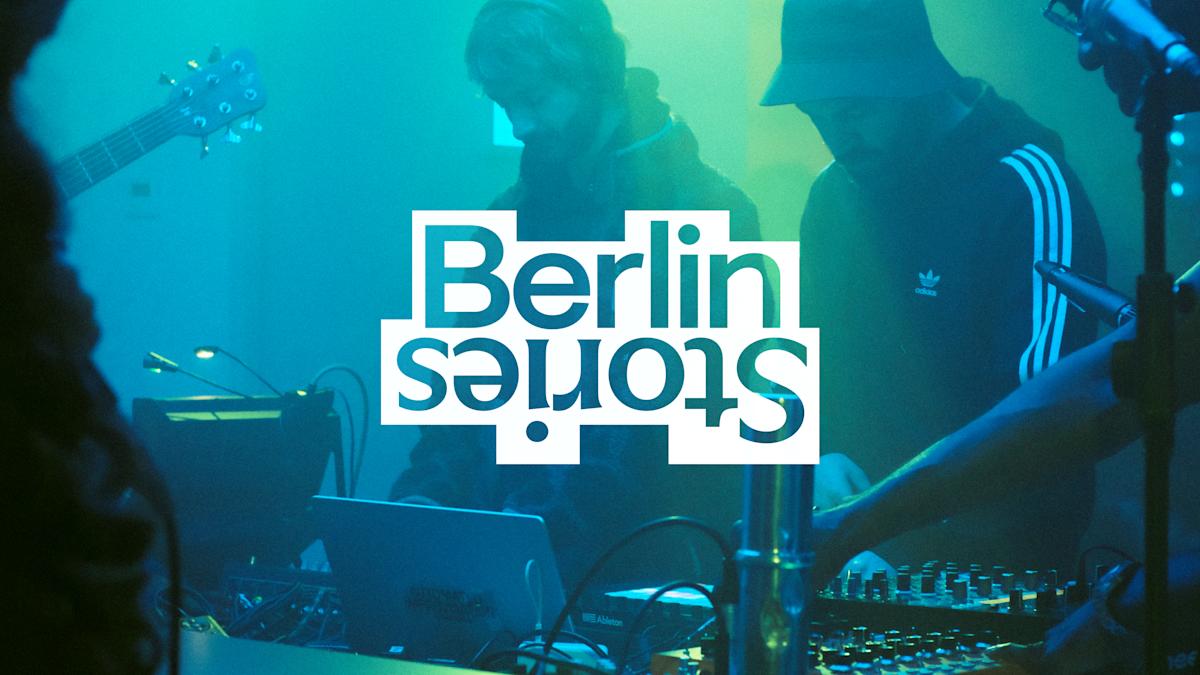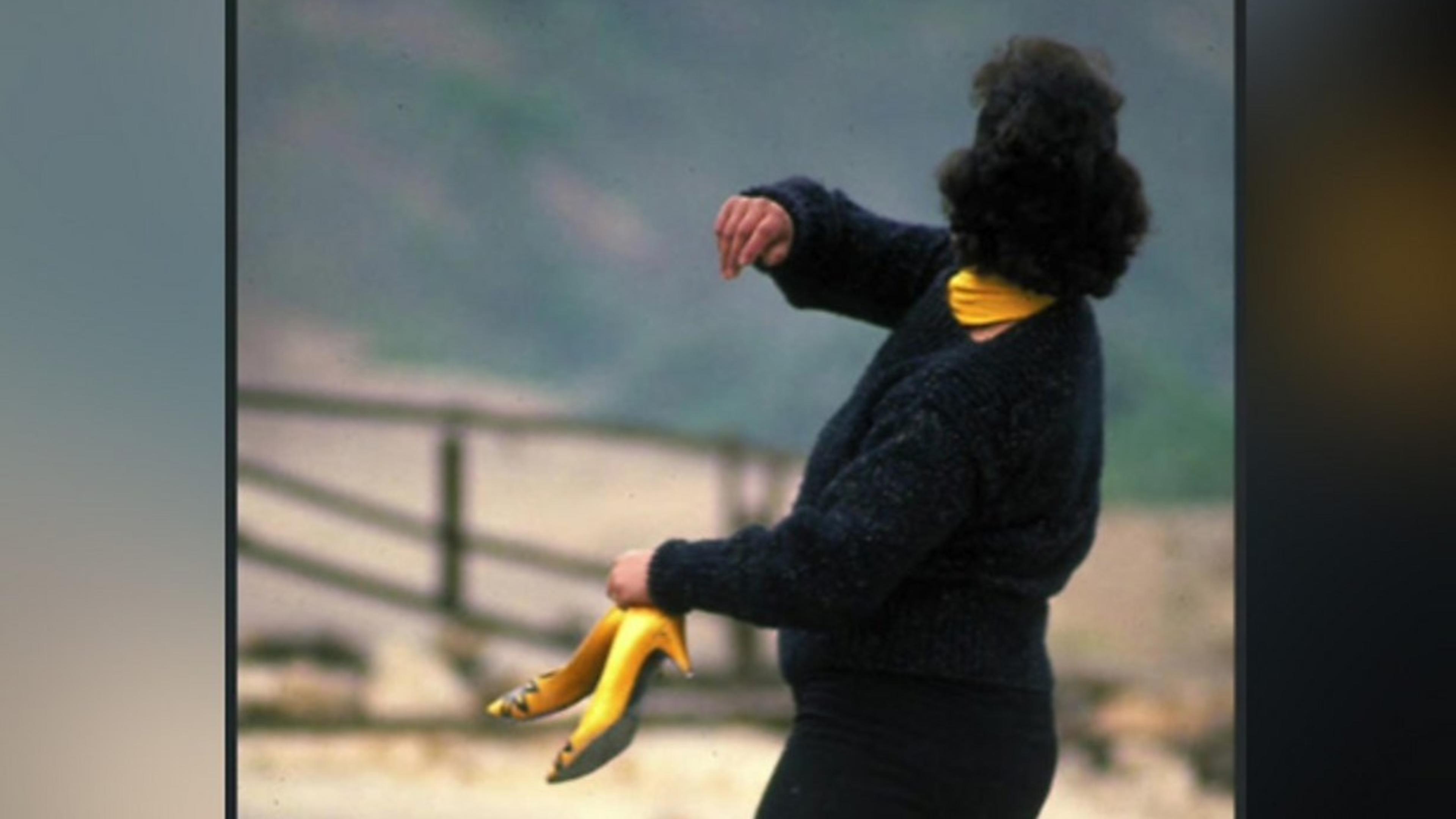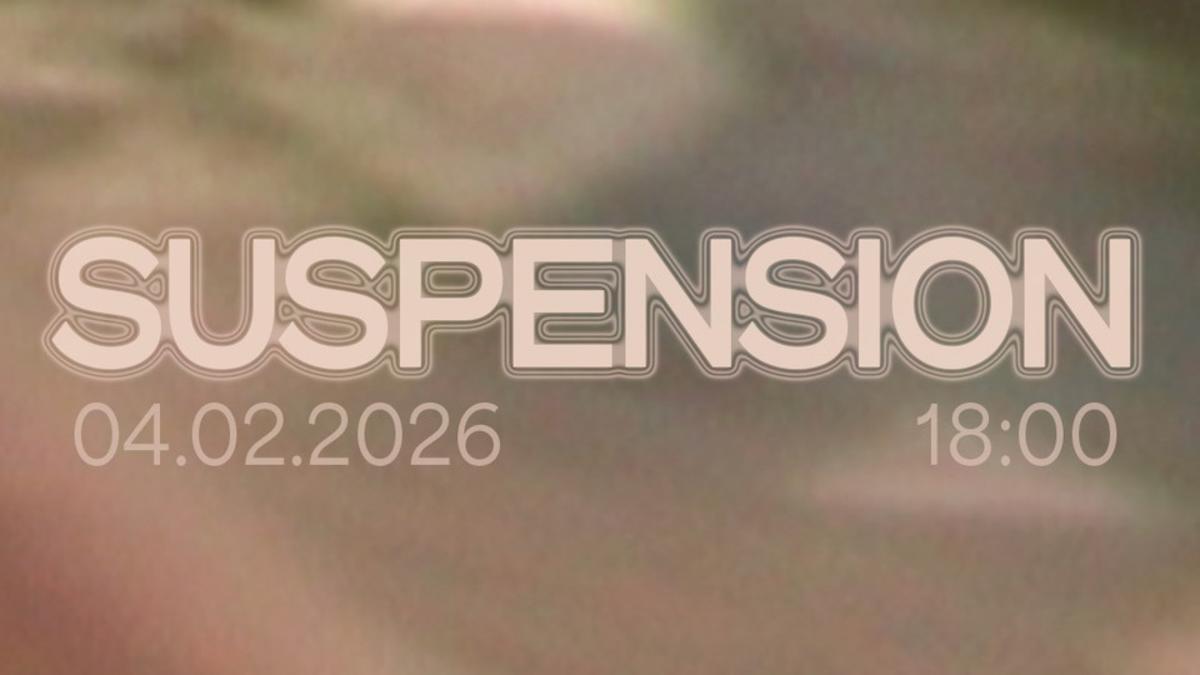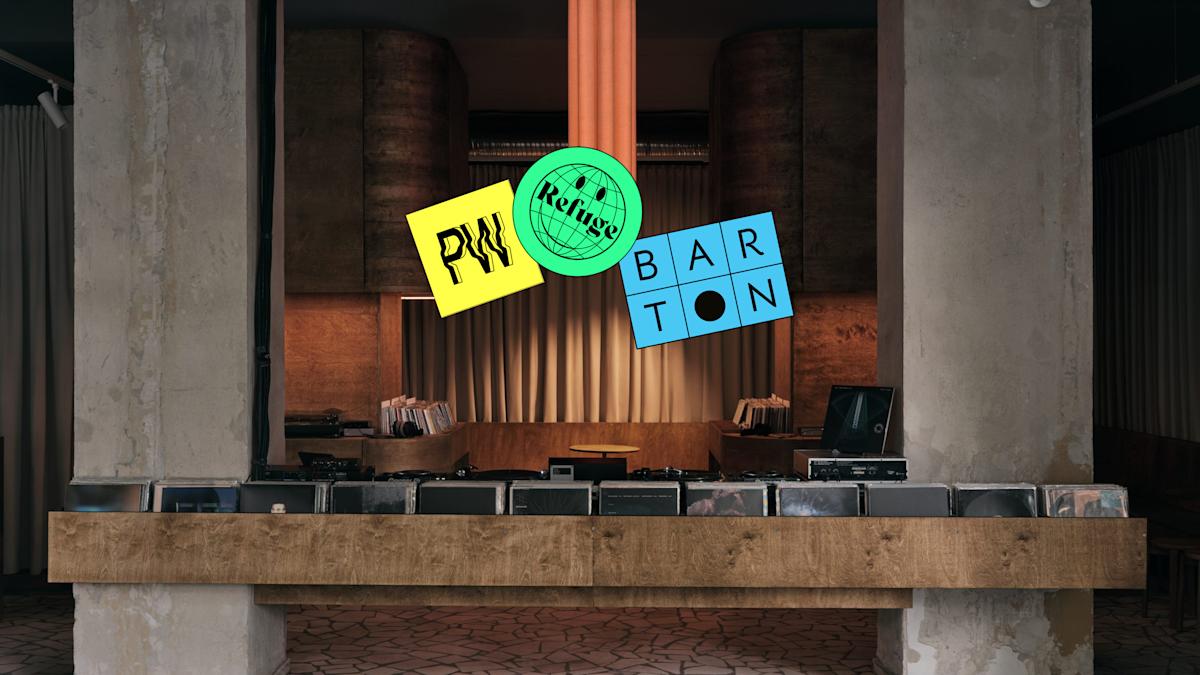
Berlin Stories
This week: Black history month, fusion soundscapes, soli kufa
Loading

A transcribed interview with Palestine Speaks
By Staff
Activists from Palestine Speaks Yasmeen Daher, Nora Ragab, Fidaa Zaanin, and Pary Qalqili got together on 8 March to talk about feminism – and whether or not it can call itself feminism if it does not oppose the genocide and starvation of Palestinians in Gaza at the hands of the Israeli Occupation Force.
Palestine Speaks has been organising protests and interventions since long before the beginning of the Israeli assault on Gaza after the 7 October Hamas attacks. In this conversation, Yasmeen, Nora, Fidaa, and Pary break down the current state of affairs and share their thoughts on feminism in Germany from a Palestinian feminist perspective.
Even in the darkest of times, as Gaza faces a genocidal onslaught persisting into its fifth relentless month, it is imperative upon us to talk about the future. In this conversation, we will discuss how our feminism reshapes our world, our lived experiences, informs our political practices, and offers us resources to confront the hurdles strewn along our path. Join us this International Women's Day as we set to talk about our sisterhood, challenge the tenets of imperialist feminism, summon the courage to imagine amidst the harrowing of pains, our aspirations for liberation and justice in Palestine and beyond.
Read an excerpt from the 8 March show with Palestine Speaks. The full show transcript is available here.
Yasmeen Daher: I want to talk about the feminism we believe in, versus the kind of feminism that we have been facing especially from white neo-liberal feminists. In recent months, the white-saviour liberal feminist enterprise, which claims to care about women's lives and freedoms, has been silent about the mass killing of Palestinians. Until now, we have not heard strong positions from those self-proclaimed feminist policymakers. The same is true for German official speakers of feminism and feminist policy, like Annalena Baerbock. Two weeks ago, a UN expert report was released on human rights violations against women and girls in Gaza [summarised here on Relief Web]. It stated: "We are shocked by reports of the deliberate targeting and extrajudicial killing of Palestinian women and children in places where they sought refuge, or while fleeing. Some of them were reportedly holding white pieces of cloth when they were killed by the Israeli army or affiliated forces."
In another quote from the same report [summarised on Relief Web]: “the experts expressed serious concern about the arbitrary detention of hundreds of Palestinian women and girls, including human rights defenders, journalists, and humanitarian workers in Gaza and the West Bank since seventh October. Many have reportedly been subjected to inhuman and degrading treatment, denied ministration pads, food, and medicine and severely beaten. On at least one occasion, Palestinian women detained in Gaza were allegedly kept in a cage in the rain and cold without food without food."
If you allow me one more quote from a UN report again: "Gaza is fundamentally a protection crisis for women. Out of 1.9 million people displaced, close to 1 million are women and girls seeking refuge in precarious sheltering conditions, yet nowhere and no one is safe in Gaza. We are particularly distressed by reports that Palestinian women and girls in detention have also been subjected to multiple forms of sexual assault, such as being stripped naked and searched by male Israeli army officers. At least two female Palestinian detainees were reportedly raped, while others were reportedly threatened with rape and sexual violence. The experts said they also noted that photos of female detainees in degrading circumstances were also reportedly taken by the Israeli army and uploaded online."
This silence in the face of this tremendous pain and very obvious genocide shows a form of demonising and dehumanising of Palestinians. We are talking about Palestinian women specifically, and the racism of the white neo-liberal feminism. Fidaa would you like to comment on how this discourse plays out in your research or activism?
Fidaa Zaanin: You mentioned the silence of these prominent proclaimed feminist figures or feminist policymakers about what's happening in Gaza, that genocide. To me, it is not shocking. Actually, I wish they were silent. That's the thing. They are silent on the abuses that our people are exposed to, but on the other hand, they are using feminist values and the rights of marginalised groups, women, and children to justify the abuses that the Israeli army is committing in Gaza. On one hand, they ignore what's happening to women in Gaza, but on the other hand, they are abusing women's rights to justify the missiles raining down on our people in Gaza.
I did not expect Hillary Clinton to say that what's happening in Gaza is not acceptable after her policies on Iraq and Afghanistan. Her feminism is imperialist state feminism. She has no problem using feminist values or appropriating feminist terms to justify war. She's a warmonger. This also applies to the proclaimed feminist figures in Germany. Feminist is not a title you add before your name. It's what you do, and what you apply in practice. They can say they are feminists, but it is imperialist feminism, colonialist feminism. Who vetoed the ceasefire five times or four times in the UN Security Council? It was a Black US-American woman advancing the interests of the empire.
But I want to go back to the UN report that you mentioned. I find the words they chose very troubling: allegedly, reportedly. No, those incidents did actually happen. Women were shot while holding a white flag. Women were sexually assaulted inside Israeli prisons by soldiers. We have to dismantle the language they use by looking at those reports. In the same way that the bodies of our women were violated, the bodies of our men were violated. We saw them blindfolded on the streets. That's a violation of the body autonomy of our people. But they disregard such violations or tolerate them. In their eyes, we are subhuman, other. But we are here to say that this is not our ceiling, having a few women here and there. It's not about representation. We don't do identity politics. I identify with people who fight my fight. We struggle together.
Pary Qalqili: If we go back to the question of what feminism actually means, feminism means first of all equality for everyone. It also means a disruption of the system that is imposing power or violence onto all of us. I think that, especially in these incredibly violent genocidal times, everyone should ask themselves what kind of values they're standing for. Apparently not even the bodies of women in Gaza or the bodies of children have any value to the dominant forces. They are still sending weapons to Israel and morally and politically supporting the State of Israel in committing the genocide. They are dehumanising and taking away the value of the lives and bodies of the Palestinians. How does this happen?
Children's bodies, women's bodies, and also men’s bodies of Palestinians are so dehumanised, and have been for decades, that now it is easy to commit genocide. There is no outrage on the political levels or juridical level. There has been no intervention until now to stop the genocide. We have all been studying how the dehumanisation of Palestinians took place through language, visual representation, and demonisation. What we are seeing now is the result of decades of dehumanisation. We have been speaking out against the dehumanisation of Palestinians for so long. It's clear that we can take no feminist scholar or activist seriously who's not publicly also speaking out against the genocide. What that means is that the person didn't understand what feminism is about. It's about life, life for everyone with equal rights and disruption in front of injustice.
Nora Ragab: For me, it's also a practice of liberation from patriarchy and oppression. Liberal feminism reproduces structures of violence, not only in their speech but also in their actions. Can this be liberating? No. For me, liberation has to also mean dismantling the power structures. I think often when we see the narrative or discourse on Palestine, we see an orientalist gendered discourse around terrorism, misogyny, and the European portrayed as this liberal feminist who promotes equal participation. This is a reinforcement of the oppression as a system. What becomes clear is also that we can think of Palestine as a single issue, but also need to think about it more broadly in a feminist anticolonial context.
Yasmeen Daher: I want to take the context we live in, Germany or specifically Berlin. Germany has its own flavour of anti-Palestinian racism. Specifically in the Palestinian case, we see a very harsh crackdown and persecution, and this manifests both in the street and in the institutions, especially since October. Nora, you were born and raised here so such an experience is not foreign to you. How do you understand these politics against the Palestinians?
Nora Ragab: It is a big question. When we talk about the Palestinian community in Germany, it's believed to be one of the biggest or the biggest communities within Europe. There are estimates that there are up to 250,000 Palestinians living in Germany. But the problem already starts here because Palestine as a category doesn't exist in German official statistics. So, we can't tell you a concrete number of how many Palestinians are living in Germany. They are either categorized as stateless, as undefined, sometimes linked to the countries of transit such as Lebanon, Jordan, Syria, and of course, some hold Israeli citizenship and are therefore categorized as Israelis, or others as Europeans or Germans. There is no such thing as Palestine because Palestine is not recognised as a state in Germany. This administered erasure of Palestine in Germany or Palestinians in Germany neglects their collective existence here.
When we look at the history of the Palestinian community in Germany, it's quite long and diverse. People migrated as students, as workers, and as refugees in the 80s already. I think the official figure would say that there are around 6300 Palestinians living in Germany. Already when it comes to data and statistics, we see the politics of erasure. There is a big discrepancy.
I always felt I had an inner self and an outer self, or external self when I think about how I grew up here. My inner self had the Palestinian maps hanging in our living room and heard the stories about the Nakba. We talked about our family in Gaza and were always rooted there. We visited them. Then there was this outer self, which was shaped by the dominant narrative. This outer self only existed in relation to the question of Israel. When I was asked where I am from, I would say Palestine and most of the time, people would ask me immediately if I accepted Israel's right to exist. My existence can't be seen separately from Israel in Germany. I think this is one of the struggles. It is also important to emphasise that the repression didn't start on 7 October. The repression has been going on for a long time.
When we think about the importance of the diaspora in the political liberation of Palestine, in Germany in the ‘70s, we had a lot of Palestinian structures related to the PLO, women's organisations, student organisations, and workers’ organisations. So, there was a life in the diaspora, which was a political life. But after the terrorist attack in Munich, members of the Olympic Games were killed, and Palestinian existence was criminalised. There has been mass deportation, unlawful mass deportation in response and immigration restrictions. So, we are either not seen at all, our existence negated, or we are hyper-visible and criminalised in the context of Germany. It has been like this historically and it influenced how many of the older generations, Sarah El Bulbeisi writes about this, were traumatised. The trauma of the older generation of our parents influenced us in a way.
Historically, there have been attempts to erase us. One aspect is that Palestine reminds Germany of their guilt and their violence and that it didn't end. It did not end with the fact that Jewish people now have a so-called safe space place in the world, a nation-state. It continues with the question of Palestine. This is an uncomfortable reminder for the Germans that their violence didn't end. For us, the Nakba continues. I think this is why many do not want to deal with the Palestinian question. Of course, it also connects to broader systems of racism. We saw how rapidly after 7 October people called for mass deportation. Olaf Scholz called for mass deportations. We saw an increase in anti-Muslim racism. We need to link these different forms of racism and understand that it's a broad aspect.
These bans on Palestinian solidarity are not new, we saw the Nakba commemoration banned in recent years and the police justified it by saying that: “the Palestinian diaspora as well as Muslim communities, presumably from Lebanese, Turkish, and as well as Syrian diaspora, and especially the youth and young adults, as considerably tense and emotionalized. This is why then the Nakba commemoration events could be a potential threat to public safety.” Here again, we see a gendered and racist discourse now of the people being portrayed as angry, most of the time, Muslim men and potential terrorists, existing only in relation to the tolerant and peaceful white German.

This week: Black history month, fusion soundscapes, soli kufa

A screening, conversation, and live performance at Niemetzstraße 1.

Refuge Worldwide residents head to Romania.